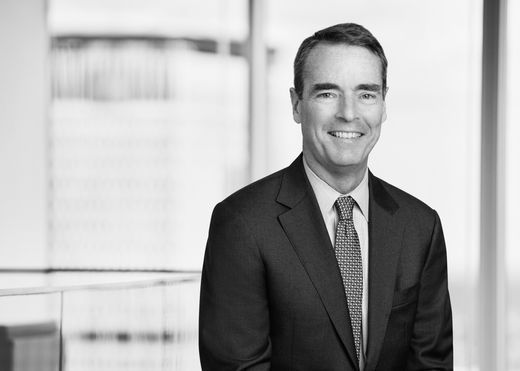The European Response to DOJ’s FCPA Enforcement “Pause”

On March 20, 2025, the United Kingdom, France and Switzerland jointly announced the formation of a new International Anti-Corruption Prosecutorial Taskforce (the “Task Force”) aimed at strengthening cross-border collaboration in prosecuting foreign corruption. The timing is notable—just one month after President Trump issued an Executive Order “pausing” all enforcement of the United States Foreign Corrupt Practices Act (FCPA).
This client alert provides an update on the U.S. Department of Justice’s (DOJ) enforcement of the FCPA since the announcement of the February pause, as well as the response from European authorities to the DOJ’s perceived retreat from anticorruption enforcement. It also examines the potential for European authorities to fill any gap in FCPA enforcement and the challenges they may face in doing so.
Current Status of FCPA Enforcement
As noted in our prior alert, on February 10, 2025, President Trump issued an Executive Order instructing the DOJ to suspend all enforcement of the FCPA (the “FCPA Executive Order”).1
The Executive Order directs the Attorney General to:
- Not initiate any new FCPA investigations or enforcement actions, unless the Attorney General determines that an individual exception should be made.
- Review and take appropriate action regarding ongoing and past FCPA investigations and enforcement actions.
- Issue updated guidelines or policies governing FCPA investigations or enforcement actions.
The Executive Order states that the President’s foreign affairs authority, American economic competitiveness and U.S. national security are impacted by “overexpansive and unpredictable FCPA enforcement against American citizens and businesses . . . for routine business practices in other nations.”2
To date, the DOJ has not issued updated FCPA enforcement guidance. However, its recent actions in several publicly charged cases appear to apply differing interpretations of the FCPA Executive Order. On the one hand, the DOJ dismissed an indictment against two U.S. citizens—former executives of a U.S. technology company—who were charged with FCPA violations.3 On the other, it filed “Notices of Authorization” to proceed to trial in three other FCPA cases.4 Two of these involve allegations that U.S. employees of U.S. companies paid bribes to foreign officials to secure business for the benefit of their U.S. companies.5
While it is important not to overinterpret these developments, they suggest that the DOJ is not applying a blanket policy of declining FCPA cases involving alleged bribes paid by U.S. companies or citizens.
Yet, these early steps have provided very limited clarity on what companies and practitioners can expect going forward. Now roughly halfway through the 180-day “pause,” it remains unclear how the DOJ will handle FCPA investigations and prosecutions, and whether future enforcement will shift focus—in particular, whether enforcement may increasingly target non-U.S. companies and individuals.
International Response to the FCPA Pause
In the days following the FCPA Executive Order, the U.K. Anti-Corruption Coalition released a statement calling the FCPA pause “a major blow to the international fight against corruption.” It urged the U.K. government to:
- Form a coalition of European Union, Commonwealth and Global South countries to uphold anticorruption norms.
- Engage the U.S. administration on the risks of undermining the Organization for Economic Co-operation and Development (OECD) Anti-Bribery Convention.
- Increase support for the OECD Working Group on Bribery and maintain momentum behind the United Nations Convention Against Corruption.
- Bolster capacity of the U.K. Serious Fraud Office (SFO) and National Crime Agency for global anticorruption enforcement efforts.
U.K., France and Switzerland Form Anticorruption Task Force
On March 20, 2025, the U.K., France and Switzerland formally launched the Task Force, emphasizing their commitment to combating international bribery. Commenting on the initiative, the Director of the SFO stated: “The commitment we have made today reaffirms our . . . commitment to tackling . . . international bribery and corruption, wherever it occurs. We will make use of every power and partnership available.”
The Task Force’s founding statement affirms the serious threat posed by corruption and outlines a framework that includes:
- A Leaders’ Group for regular strategic coordination.
- A Working Group to develop cooperation proposals.
- Mechanisms for sharing best practices and expertise.
- A platform for operational collaboration.
The statement also allows for the inclusion of “other like-minded agencies” by mutual agreement.
The three countries already share a history of close cooperation in anticorruption enforcement. As the Head of the Parquet National Financier (PNF) remarked, “ten years of operational cooperation between the PNF, SFO and OAG are developing today into the setting up of a prosecutorial taskforce.”
Although the timing of the Task Force launch appears connected to the FCPA “pause,” the SFO Director emphasized that the initiative is not a direct response to U.S. policy changes. He noted that the European authorities will continue to work with their U.S. counterparts at the DOJ, even if “clearly, domestic priorities have switched over there.”
Will European Enforcement Fill the Void?
While the future of FCPA enforcement remains uncertain, the creation of the Task Force signals that the SFO, PNF and Swiss Office of the Attorney General may be positioning themselves to fill any perceived void left by the sudden slowdown in U.S. enforcement.
It is unclear, however, whether the European authorities will have the legal tools, resources, political will or ability to significantly expand the reach of their own anticorruption laws.
Historically, the DOJ has aggressively pursued foreign companies—including those based in the U.K., France and Switzerland—for FCPA violations, while European authorities have more often tended to focus enforcement on their own domestic companies and citizens. For example, although the DOJ has prosecuted several French companies for FCPA violations, the PNF has not initiated comparable prosecutions of U.S. companies. This discrepancy may stem from legal limitations, resource constraints or prevailing enforcement norms.
A key question going forward is whether European authorities will increase their pursuit of U.S. companies or individuals to address a perceived gap in FCPA enforcement. Speaking at a May 7, 2025, conference, the Director of the PNF reportedly stated that his agency will not distinguish between companies based on their nationality and “expect[s] the same standard from a French company [as] from a foreign company.”6 Were European authorities to initiate investigations or enforcement actions against U.S. companies, it would then raise the question of whether the DOJ—or the U.S. government more broadly—might respond in a retaliatory manner.
Given the significant uncertainty surrounding global anticorruption enforcement, multinational companies caught in the middle of this quickly changing landscape should continue to maintain robust, well-designed and well-resourced anticorruption compliance programs.
1 Following this Executive Order, a senior official of the U.S. Securities & Exchange Commission (SEC), which maintains civil enforcement authority under the FCPA, stated that the SEC was “obviously going to follow the lead of the DOJ.” Antonia Apps, then-Acting Deputy Director of the SEC, Speech at ABA White Collar Conference (Mar. 5, 2025).
2 Executive Order, Pausing Foreign Corrupt Practices Act Enforcement to Further American Economic and National Security (Feb. 10, 2025) (available at https://www.whitehouse.gov/presidential-actions/2025/02/pausing-foreign-corrupt-practices-act-enforcement-to-further-american-economic-and-national-security/).
3 See United States v. Coburn, No. 19-cr-00120 (D.N.J.).
4 See United States v. Bautista, No. 24-cr-20343 (S.D. Fla.); United States v. Zaglin, No. 23-cr-20454 (S.D. Fla.); United States v. Hobson, No. 22-cr-00086 (W.D. Pa.).
5 United States v. Zaglin; United States v. Hobson.
6 Austin Cope, PNF Director: International Anti-Corruption Task Force Will Treat Companies Equally, GIR (May 7, 2025), https://globalinvestigationsreview.com/just-anti-corruption/article/pnf-director-international-anti-corruption-task-force-will-treat-companies-equally.





















